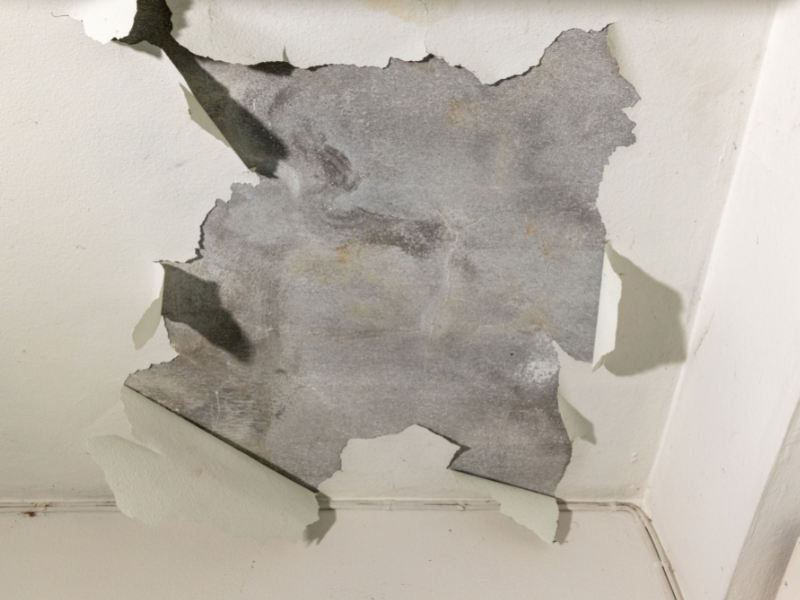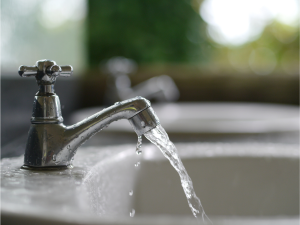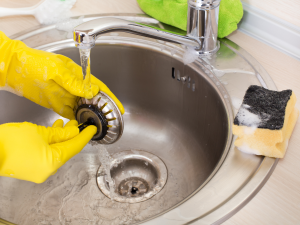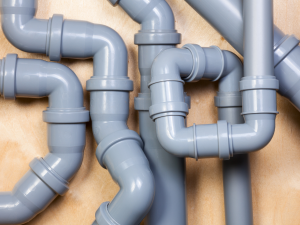A slab leak can be a homeowner’s worst nightmare.
It is caused when a pipe beneath the concrete slab that makes up the home’s floor has developed a leak. This can be for many reasons, but the bottom line is that it is a severe problem that must be fixed and rarely an easy solution.
You can learn the answer to the question, “what causes a slab leak?”, and much more, by reading this article that our team at Clover Contracting has put together.
What is a slab leak?
If your house is built on top of a concrete slab, then beneath that slab is all of the plumbing for your home.
When the builders constructed your home, they prepared the ground with gravel, placed your plumbing within the gravel, and then poured the concrete over the top of it. If your plumbing develops a “slab leak,” it can begin to erode the ground beneath your floor.
What causes slab leaks?
Water leaking underneath your slab can begin to erode the ground away, which can cause the leak to worsen, which will only intensify the entire situation.
It can deteriorate the environment to the point that your house begins to settle, which will cause cracking in the sheetrock, breaking in the floor, and the potential for many other severe and expensive problems.
You may also start to notice water in your home. If the water leak can find its way to the surface of your floor, you will see it. This can cause water damage or, in some cases, mold in your home. A slab leak will need to be addressed quickly once it is found.
Examples of slab leak causes?
Improper installation: So, what causes slab leaks? Well one of the most common reasons for slab leaks is poor materials or installation practices when the plumbing was put into place. Any kinks, bends, or damage to the pipe placed beneath your home can cause it to break eventually.
Piping material: Metal plumbing pipes will be more likely to break due to their corrosive properties. In older homes, cast iron, galvanized steel, and copper have been popular options for plumbing contractors above and below the concrete.
Copper is still a popular choice for water lines today. The installers have to be very careful when installing it because even a dent in its side can result in a weak spot over time that will cause a slab leak. If copper is to be used in the ground, it should be the most rigid and thickest-walled copper piping available to help ensure no catastrophic damage.
Plastic has become a popular option throughout recent years. PVC and CPVC have led the way for PEX tubing for plumbing supply lines. Plastic pipe makes for great options as they are corrosive resistant, but PVC and CPVC can become brittle over time. PEX piping is much more flexible and does not have the same brittle qualities as its plastic brethren, quickly becoming the go-to option for plumbing homes.
Shifting soil: Your home had the ground prepared, gravel put in place, and everything was prepped to the best of the builder’s abilities, but something that cannot be accounted for is the shifting soil.
Soil absorbs water, it shifts, and it erodes. These are all things that can potentially affect your home and, therefore, may cause slab leaks. Your home movement and settling will worsen when you account for natural disasters. Earthquakes, tornados, and floods will only shift the ground or put more pressure on your home. This can cause your pad to settle or move, which may cause a water line to break, and then you are left with a slab leak.
What are the signs of a slab leak?
If you don’t know what to look for, then it may be easier than you think to have a slab leak without you even knowing.
- If your water bill has gotten higher, even though you aren’t using more water.
- If you hear water running, even if you don’t have any faucets running inside or outside your home.
- Noticing any foundation cracks or other cracks developing across the floor of your home.
- Flooring materials or floor coverings become discolored or damp without reason.
- If there is a damp or hot spot on the floor.
- Bad smells coming from the floors or walls can signify standing water.
- If you have an exceptionally well-growing spot in your yard, this may represent a water leak.
- Lower than usual water pressure
- If the ground around your home has developed a noticeable shift in elevation.
If your home begins to develop these issues, you should immediately call a professional plumber. A slab leak can cause immense amounts of damage and should be taken care of as soon as possible by a professional who can repair it quickly and correctly.
How to fix a slab leak?
There are a few different popular slab leak repair options for repair that you will be able to discuss with your plumber.
Rerouting the plumbing: Sometimes, this is the easiest option. This option will entail running new plumbing from outside of your home to the appliance that the water line fed. This may end up having water lines in less than ideal places.
Through the slab: This is one of the most common methods for repairing a water leak under slab, but it is also one of the messiest ways. Going through the concrete will mean that the plumbing company has to cut a hole in your floor, jackhammer the concrete, haul the concrete out of your home, dig down to the plumbing, repair the plumbing, put the dirt back, and then pour fresh concrete.
Digging from the outside: Depending on the leak’s location, it may be able to be reached from the outside of the home. This can be a dangerous way to access the leak and only be done at the plumbing company’s discretion.
What else should I know about how to fix a slab leak?
You will want to check with your insurance company to ensure that you are covered for something such as a slab leak. Many people find out too late that they have a slab leak issue and that their insurance company will not cover it. Also you will want to make sure that you don’t have any other plumbing issues. A slab leak could cause more than one issue to arise.
If you see any signs of a slab leak or are worried that you may have one, you will need to call a professional immediately. Slab leaks can be hazardous to your home and must be addressed quickly. It will not be a problem that an average homeowner will be able to fix themselves and will need to hire a professional to make the repairs.








